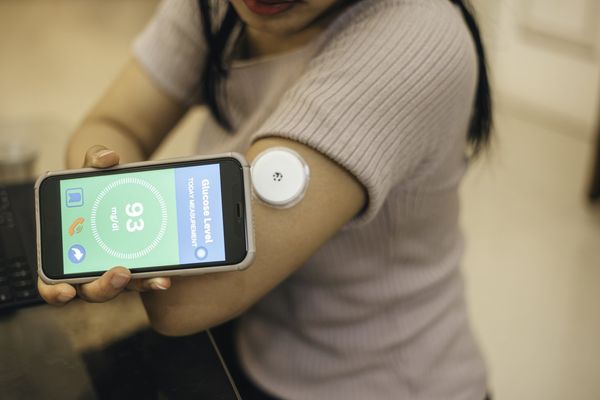If your doctor just started you on insulin therapy, you've likely had diabetes for a while and you know the importance of following a healthy diet, exercising regularly and monitoring your blood sugar levels. Nothing changes in terms of these requirements now that you're on insulin. Hopefully, you'll find it easier to keep fasting blood sugar levels in your target range and to reach an A1C of less than 7 percent.
You may be wondering about the effect of insulin on other aspects of your life. Here's what we know:
Your sex life. You may have noticed changes in your libido and sexual life since your diagnosis of diabetes. High blood sugar can reduce vaginal lubrication, leading to dryness and pain during intercourse. It can also increase the risk of vaginal infections, which can make sex more painful. Long-term damage to small blood vessels can occur when diabetes isn't well controlled, resulting in decreased arousal. Since insulin should provide better control of your blood sugar, with fewer episodes of high blood sugar levels (hyperglycemia), you may see these symptoms improve.
Pregnancy. Having diabetes during pregnancy can increase the risk of miscarriage, early labor and delivery, as well as preeclampsia and congenital defects in the baby. However, the best thing you can do to prevent these issues is to control your blood sugar levels before and during your pregnancy. In fact, all guidelines regarding pregnancy and diabetes recommend starting insulin therapy before getting pregnant so women can achieve target blood sugar (glucose) levels before conceiving. Taking insulin during your pregnancy is perfectly safe. One study that reviewed 10 years of pregnancy outcomes in women with type 2 diabetes found those taking insulin during pregnancy had significantly lower rates of complications. If you use oral medications for blood sugar control, talk to your health care provider about whether they are approved for use during pregnancy.
Menopause. Once you are menopausal, your body's production of insulin drops even further, increasing insulin resistance. The fact that you're already taking insulin is a good thing, but be sure to monitor your blood sugar for changes in your insulin requirements after menopause.
As for hormone therapy, the decision is up to you and your health care professional. Replacement estrogen and/or progesterone therapy is recommended only for short-term use to address symptoms such as hot flashes and vaginal dryness in perimenopausal and postmenopausal women, but not for long-term use. The same recommendations apply if you have diabetes.
An analysis of 107 studies found that hormone therapy reduces insulin resistance and fasting blood sugar levels in women with type 2 diabetes. However, if you have any significant risk factors for heart disease, talk with your doctor about whether hormone therapy is right for you and about other steps you can take to reduce your risks.
Other medications. People with diabetes often need other medications, such as a statin to control cholesterol and blood pressure-lowering drugs. Some drugs can increase your response to insulin; others can reduce it. Those that may increase the blood sugar-lowering effects of insulin include ACE inhibitors, fibrates, certain antidepressants, most oral anti-diabetes medications, some anti-arrhythmia drugs, certain pain relievers, hormones and antibiotics. Drugs that can reduce the blood sugar-lowering effects of insulin include certain steroids, niacin, diuretics, albuterol, certain hormone medications like thyroid hormones and estrogen and progesterones in oral contraceptives, as well as some psychiatric medications such as olanzapine and clozapine.
Beta blockers, clonidine and lithium can make you more susceptible to hypoglycemia, while pentamidine can cause hypoglycemia, sometimes followed by hyperglycemia.
Remind every health care professional who prescribes any drug for you that you take insulin, and ask if the drug will affect your blood sugar levels.
Taking insulin for your diabetes doesn't have to change your life. In fact, given the evidence regarding the benefits of insulin therapy in diabetes, it will help you have a longer, healthier life.







